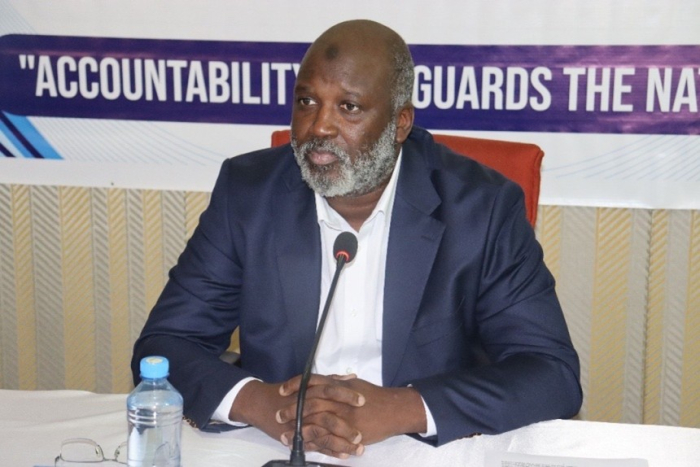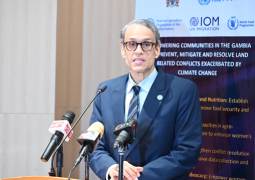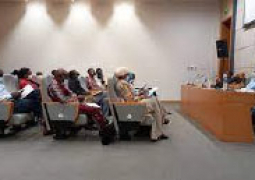
But before even addressing the Commission’s creation, Tambadou, opened with a dilemma stating:
“I am under one oath here to tell the truth, the whole truth and nothing but the truth,” he said, “and another oath as a former cabinet minister, sworn to secrecy and confidentiality. There is a limit to what I can share in terms of cabinet discussions.”
Counsel pushed back, reminding him that parliamentary oversight overrides cabinet secrecy. Still, Tambadou made clear his unease. “The problem is my evidence is exposed to the public. Sometimes proceedings are held in camera to redact sensitive testimonies. It’s not about the committee itself but the public nature of my words,” he argued.
Despite his reservations, he chose transparency: “I want the public to hear my testimony, and to hear all of it.”
Tambadou recounted that the cabinet’s decision to set up the Janneh Commission was unanimous, but not methodical. “At the time, we didn’t have the luxury to sit and think about the effects on the economy,” he admitted. “There was already an approved budget for 2017, but later, the new administration revised it. We didn’t have enough resources, which is why I sought external funding for the transitional justice process.”
When challenged that he had once blamed the lack of budget for the Commission, Tambadou countered: “There was a revised budget, yes. But allocations were insufficient. That is why I improvised. You don’t always get the resources you need. you need do with what you have.”
Counsel probed whether the government’s failure to properly plan undermined the Commission’s independence. Did the lack of financial autonomy compromise it?
Tambadou, rejected that idea, saying: “There are different levels of independence,” he explained. “I focus on operational independence, not financial independence. Even if a commission depends on government funding, it can still act independently. The judiciary, for example, relies on a budget approved by Parliament yet can rule against Parliament itself.”
Tambadou went further, insisting the Janneh Commission was more independent than any before it. “Visitors from the Ford Foundation told me they had never seen such efficiency and independence in a commission established by government anywhere on the continent. They even wanted other African countries to replicate our model.”
Tambadou also revealed that the administrative unit of the Commission was led not by a public officer but by someone from the private sector. “We decided to seek an outsider from the private sector to head the administrative unit,” he said proudly. “That had never occurred before, at least to my knowledge.”
When asked if the decision to establish the Commission was influenced by external donors or international partners, Tambadou was quick to defend its sovereignty: “I do not want this to be seen as something imposed from outside. It was certainly a national project. Conceived and decided upon by cabinet.”
Read Other Articles In Headlines
Defence challenges prosecution witness
Jun 24, 2022, 1:56 PM




